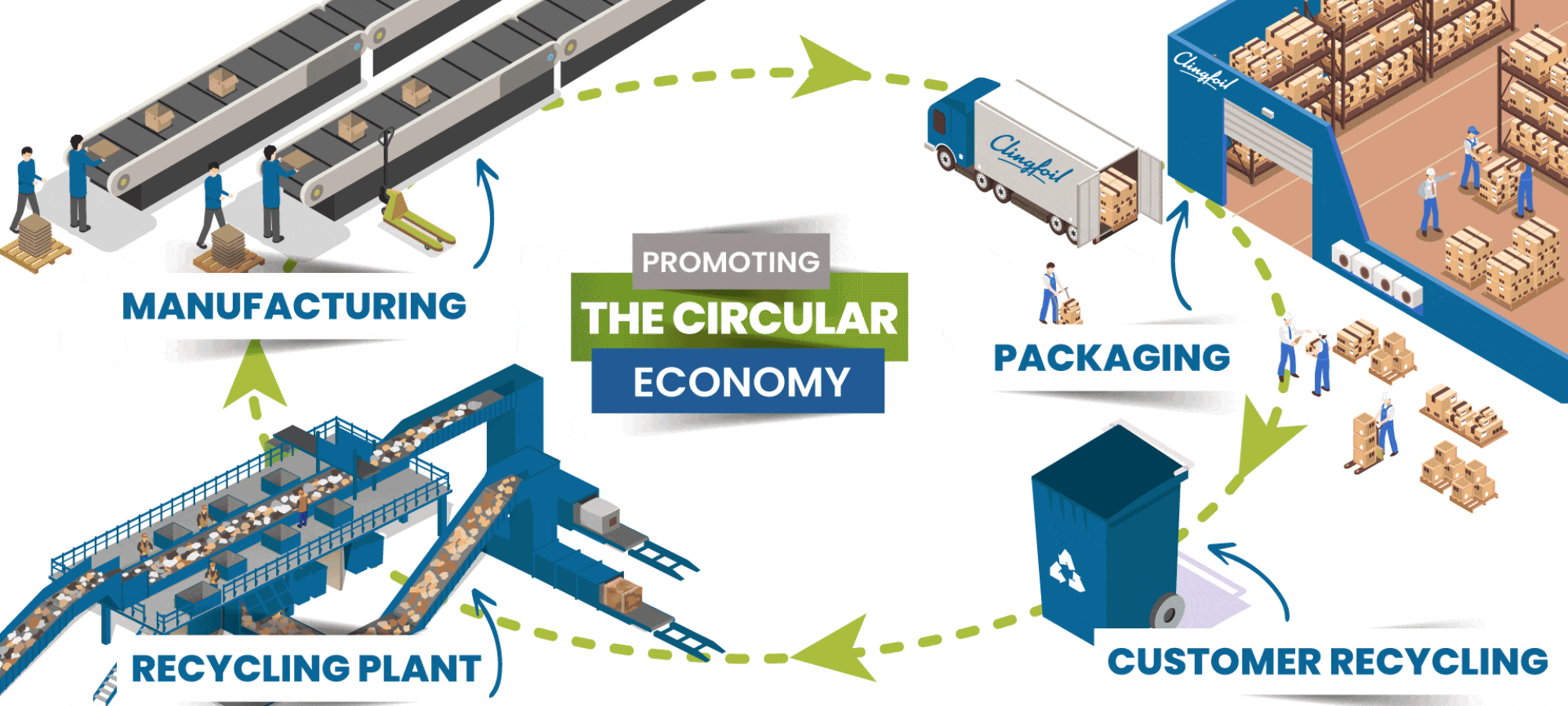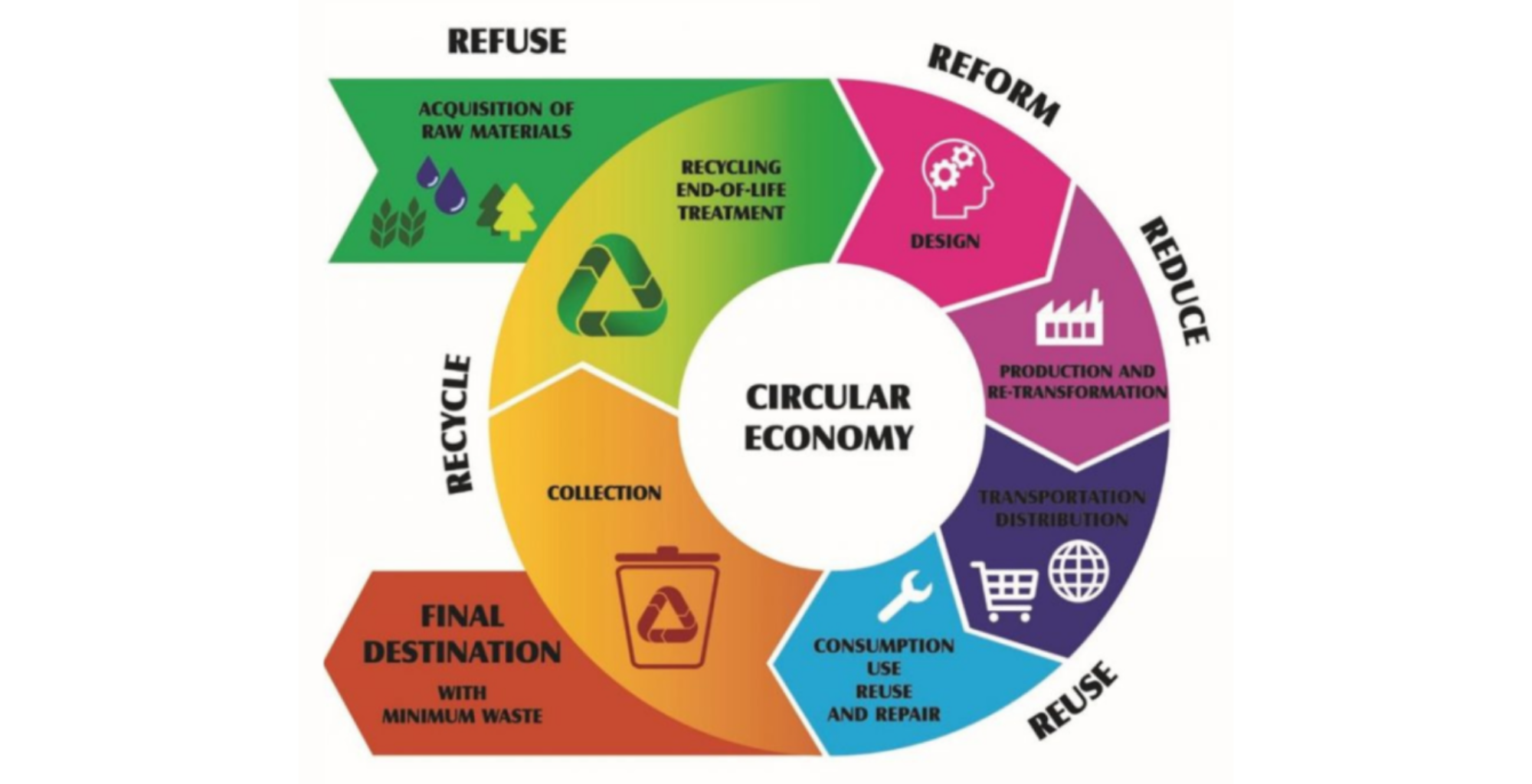Lorem ipsum dolor sit amet, consectetur adipiscing elit Lorem ipsum dolor sit amet, consectetur adipiscing elit
Latest news from Packaging Innovations & Empack
10-Point plan: What packaging professionals need to know about the circular economy push

The packaging sector is at a pivotal moment. With sustainability and net zero targets becoming central to UK policy, the Chartered Institution of Wastes Management (CIWM) has released a 10-point plan that outlines how the resources and waste sector – including packaging – can play a leading role in shaping a circular economy.
This plan, based on an independent review of the UK’s policy landscape, offers practical recommendations for government and industry to align efforts around jobs, growth, and environmental responsibility. For packaging professionals, it’s a roadmap to future-proof operations and staying ahead of regulatory and market shifts.
The Plan:
1. Make the Circular Economy a Core Policy Driver
CIWM urges the UK Government to embed circular economy principles into all areas of policymaking. For packaging, this means designing for reuse, recyclability, and minimal waste from the outset, instead of as an afterthought.
2. Integrate Policies Across Departments
Resources and waste policy must be aligned with energy, industrial strategy, and net-zero goals. Packaging professionals should anticipate more joined-up regulations that affect materials, production, and end-of-life management.
3. Invest in Green Skills
Skills England is encouraged to expand its focus to include green jobs. For packaging companies, this presents an opportunity to upskill teams in sustainable design, material science, and circular logistics.
4. Strengthen Resource Resilience
Global instability has exposed vulnerabilities in supply chains. Packaging firms can respond by sourcing recycled materials, diversifying suppliers, and designing for material efficiency.
5. Expand Extended Producer Responsibility (EPR)
CIWM recommends applying EPR to more waste streams, including electronics, textiles, and mattresses. Packaging professionals should prepare for stricter accountability and reporting requirements, especially around complex or composite materials.
6. Support Reuse and Repair
Policy support for reuse and repair is currently lacking. Packaging businesses can lead by developing reusable formats, offering repairable components, and collaborating with retailers to extend product life cycles.
7. Reform Regulatory Frameworks
The review of Defra’s regulatory landscape is a chance to streamline compliance and improve outcomes. Packaging professionals should engage with regulators to ensure practical, innovation-friendly rules.
8. Reflect Energy-from-Waste Costs in EPR Fees
As Energy-from-Waste (EfW) becomes more expensive under the UK Emissions Trading Scheme, CIWM suggests adjusting EPR fees to reflect true environmental costs. This could influence packaging choices, favouring recyclable or compostable materials over incineration-prone formats.
9. Fully Implement the Resources & Waste Strategy
The 2018 strategy includes key reforms that remain incomplete. Packaging professionals should track progress and align their sustainability goals with national targets to stay ahead of future mandates.
10. Tackle Waste Crime
Illegal dumping and mismanagement cost the UK economy over £1 billion annually. CIWM calls for more resources to combat waste crime. For packaging firms, this means ensuring traceability and compliance throughout the supply chain.

Where Things Stand
Of the ten recommendations, only one (creating a cross-government Circular Economy Task Force) has been fully implemented. Four are in progress, including strategy development and regulatory reform. The remaining five, including green skills and EPR expansion, are yet to be adopted.
What It Means for Packaging Professionals
This plan is not just a policy wish list; it’s a signal of where the UK is heading. Packaging professionals who act now can position themselves as leaders in sustainability, innovation, and compliance. Whether it is investing in reusable formats, preparing for expanded EPR, or engaging with regulators, the opportunities are clear.
As Marcus Gover, Chair of CIWM’s Policy & Innovation Forum, puts it: “There are major opportunities for the UK Government and the Devolved Administrations to enable our sector to contribute in full to the shared ambitions of sustainable economic growth, more renewable energy, and acceleration towards net zero and a circular economy.”
Share this article

Lorem ipsum dolor sit amet, consectetur adipiscing elit Lorem ipsum dolor sit amet, consectetur adipiscing elit
Latest news from Packaging Innovations & Empack
Lorem ipsum dolor sit amet, consectetur adipiscing elit. Ut elit tellus, luctus nec ullamcorper mattis, pulvinar dapibus leo.



